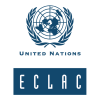The global agreement set out in the Sustainable Development Goals (SDGs) calls for inclusive development to address social and gender inequalities, eliminate poverty and consolidate the economic, social and cultural rights of all. To move towards achieving those Goals, competencies must be developed over the life cycle that allow individuals to be integrated fully into the world of work.
In recent years, thanks to Norway’s cooperation, ECLAC has sought to strengthen the link between technical and vocational education and training and the labour market, making the issue a strategic pillar of the regional agenda of Latin America and the Caribbean. Looking at this from different perspectives has generated knowledge and recommendations that have underpinned key policy discussions within ECLAC initiatives. The various ECLAC divisions involved in this project have incorporated the technical recommendations from this research in the main documents presented at official regional and subregional meetings, promoting policy dialogue among countries and highlighting the importance of this topic as a link between social and production development in the region.
In this context, ECLAC has sought to document best practices by generating evidence, building capacities and providing technical assistance to selected countries to strengthen technical and vocational education systems and programmes to promote greater equality.
Interdivisional work
The Division for Gender Affairs: this Division’s work has focused on generating knowledge about the situation of women in technical and vocational education systems and analysing the challenges they face when entering technical professions and over the course of their careers. This analysis has led to public policy recommendations that could reverse the gender biases in vocational and technical education and that promote the economic autonomy of women graduates of that educational system, by fostering dialogue among national mechanisms for the advancement of women and other key actors in the countries of the region.
The Economic Development Division: this Division’s work has focused on building knowledge on best practices and methodologies used to identify and anticipate the competencies needed in the labour market and how this information is shared with the main social stakeholders. It has also sought to identify policy recommendations for financing technical and vocational education systems while ensuring the best use of resources.
The Social Development Division: this Division’s work has focused on analysing the supply of work training programmes (particularly, those that address the situation of people excluded from the labour market) and the supply of formal technical and vocational education at the secondary and tertiary levels. Based on research and experience-sharing, the Division aims to help countries to enhance the supply of training programmes and the link between education and employment by promoting dialogue among the various stakeholders.

